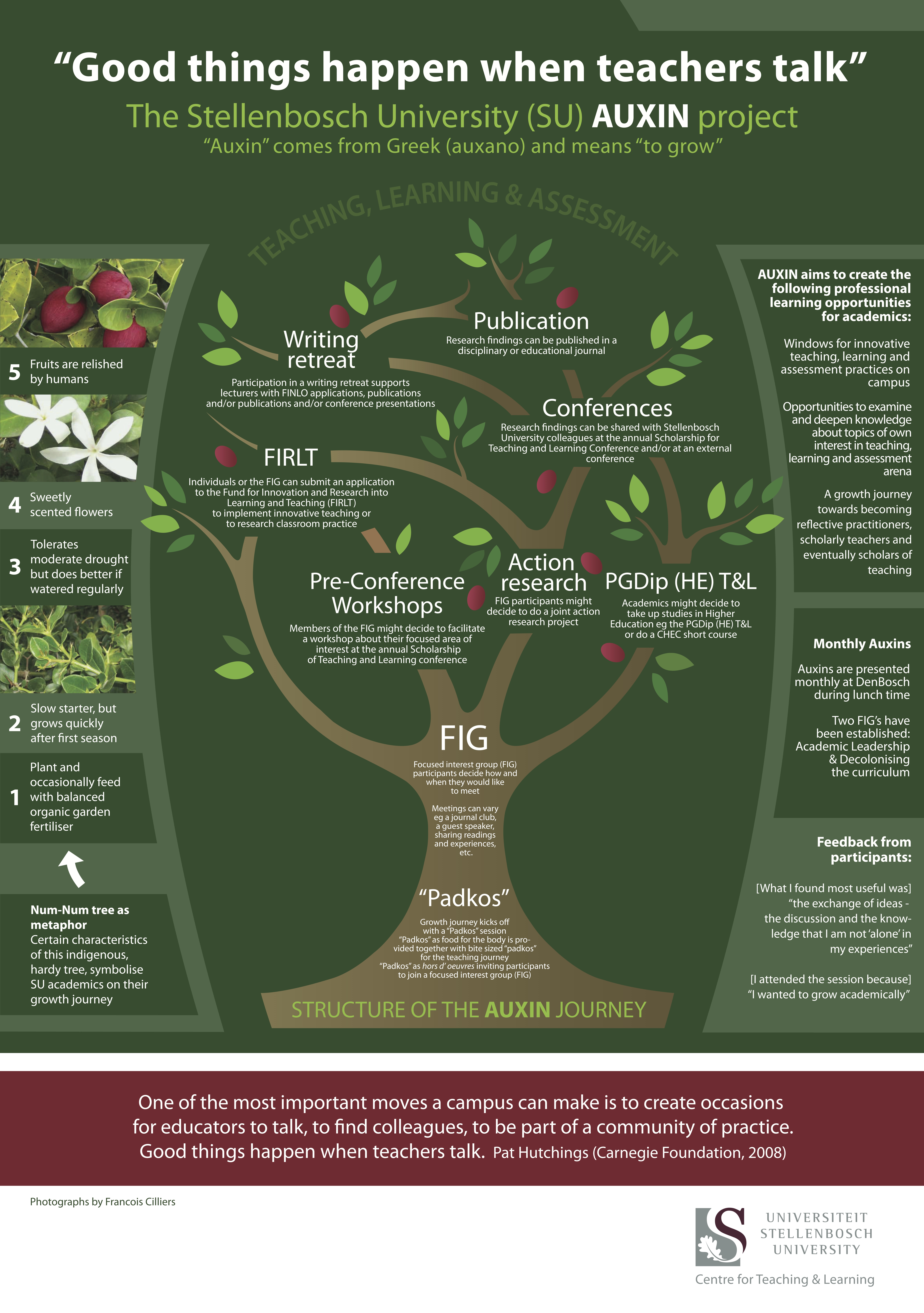Growth opportunities within the AUXINs
The growth opportunities includes the Auxin "Padkos"-sessions which are held once a month (over the lunch hour) on Tuesdays. Padkos as food for the body will be provided together with “padkos” for the teaching journey.
During the padkos-session participants will also get the opportunity to indicate their interest in joining a focused interest group (FIG) to research a specific topic in more depth. The FIG participants can decide how and when they would like to meet and the meetings can include a variety of activities. Possible outputs of the FIG can be an action research project or the facilitation of a workshop. A FIRLT application might flow from the interactions followed by a presentation at the annual Scholarship for Teaching and Learning Conference and publication of their findings in a academic journal. The participation in awriting retreat will further support lecturers to the point of publication and/or presentation at an external conference. Academics might also decide to take up studies in Higher Education.
See below for a graphic representation of the growth opportunities within the Auxins:

Explanation of the metaphor
The Num-Num tree, hardy and indigenous to the Western Cape, was chosen as metaphor for this project because we could see the links between certain of its unique characteristics and SU academics who decide they want to grow during their teaching journey. We interpret these characteristics as follows:
Evergreen: Academics who walks along the Scholarship of Teaching road, are constantly growing and is a sign of “life”.
Indigenous: Academics who focus on their teaching and the Scholarship of teaching, are not aliens. Teaching at SU is their terrain and it is where they flourish.
Hardy and adapts to a wide variety of (garden) conditions: The academic who focuses on his/her teaching role is not easily overpowered. They can make plans and can survive on strange places and under challenging circumstances.
Sweetly scented flowers: Academics that bloom in their teaching role, attract colleagues and students in the same way that sweetly scented flowers attract bees and butterflies.
Fruits are relished by humans: When the academic starts sharing his/her research on teaching at conferences and in publications, it is snatched up by colleagues.
Spines: Academics who focus on their teaching, can live up to anything or anybody.
Enduring wind, heat and salt spray: Although it might be difficult to keep yourself up against the “elements”, the SU academic who focuses on his/her teaching role keeps on growing despite a sometimes difficult path.
Will tolerate moderate drought but does better if watered regularly: Regular interaction with colleagues at CTL and other academics who share the same sentiments about their teaching, supply enough resources to survive droughts and to ensure a bumper crop in times of plenty.
Slow starter but grows quickly after the first season: It might sometimes feel as if no progress is made, but be encouraged, because after a slow start there is abundant growth!
Loves full sun: The Centre for Teaching and Learning (CTL: Afr SOL) will be the sun on overcast days.
For best results plant it in composted soil and feed with a balanced organic garden fertiliser occasionally in summer: The Auxin–project aims to create these ideal circumstances for optimal growth with the Auxin-growth opportunities.

